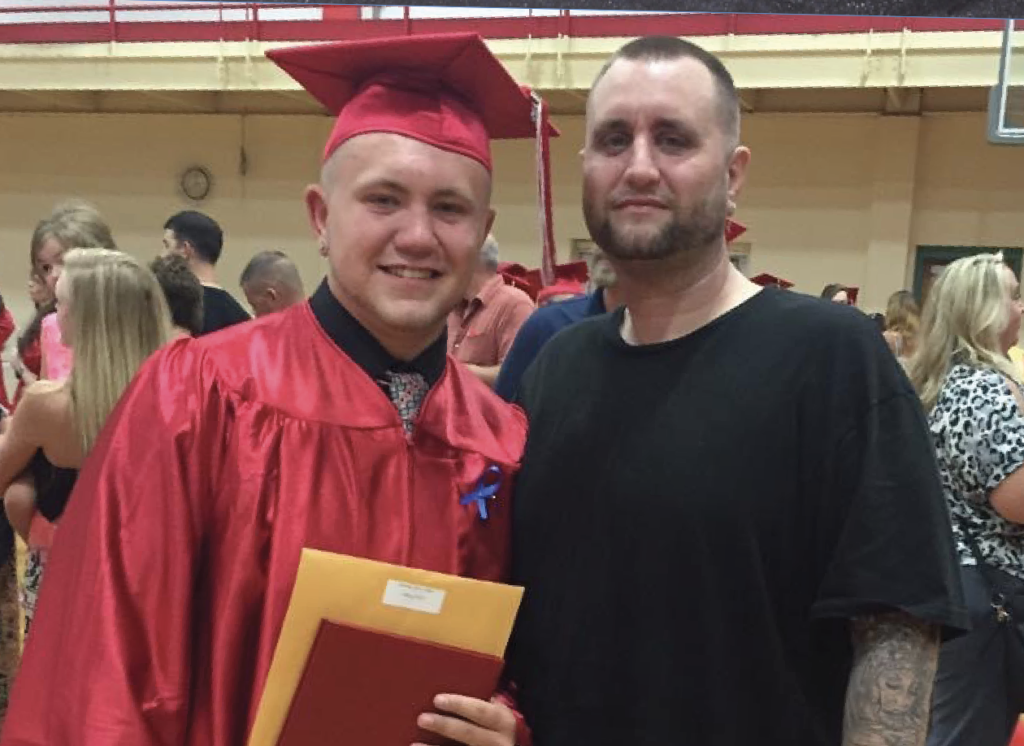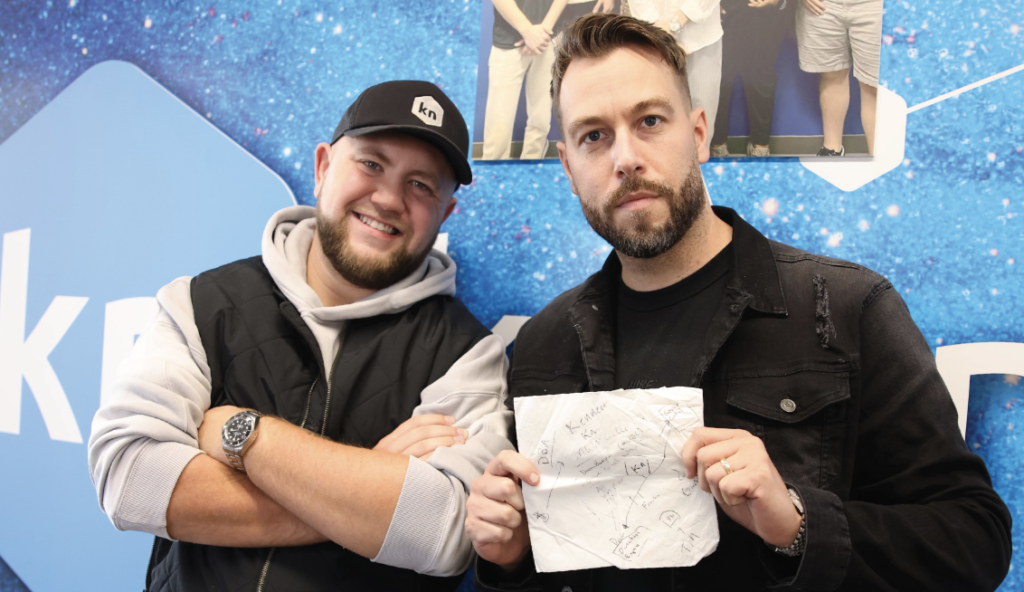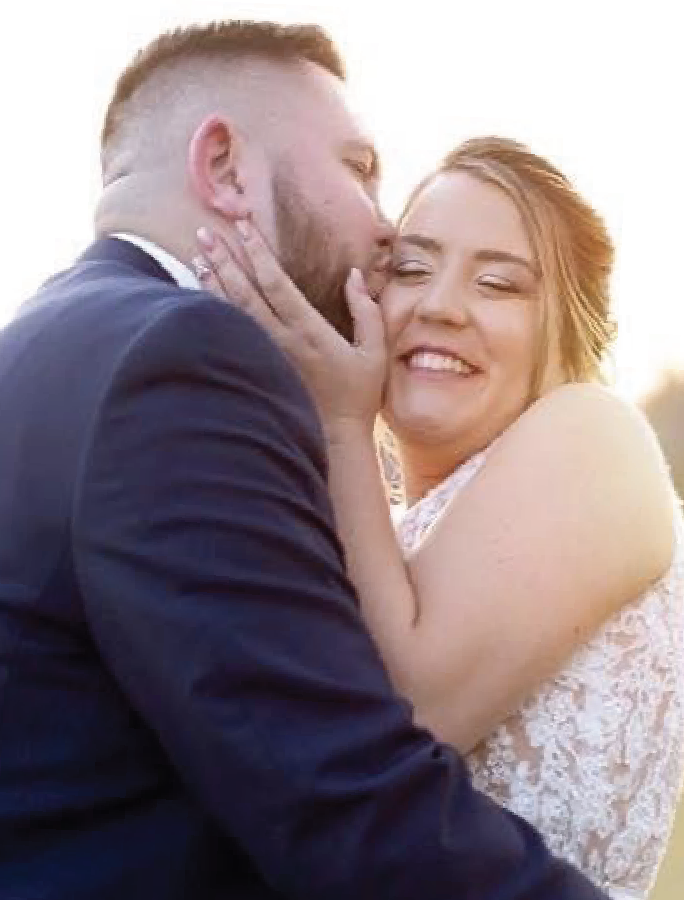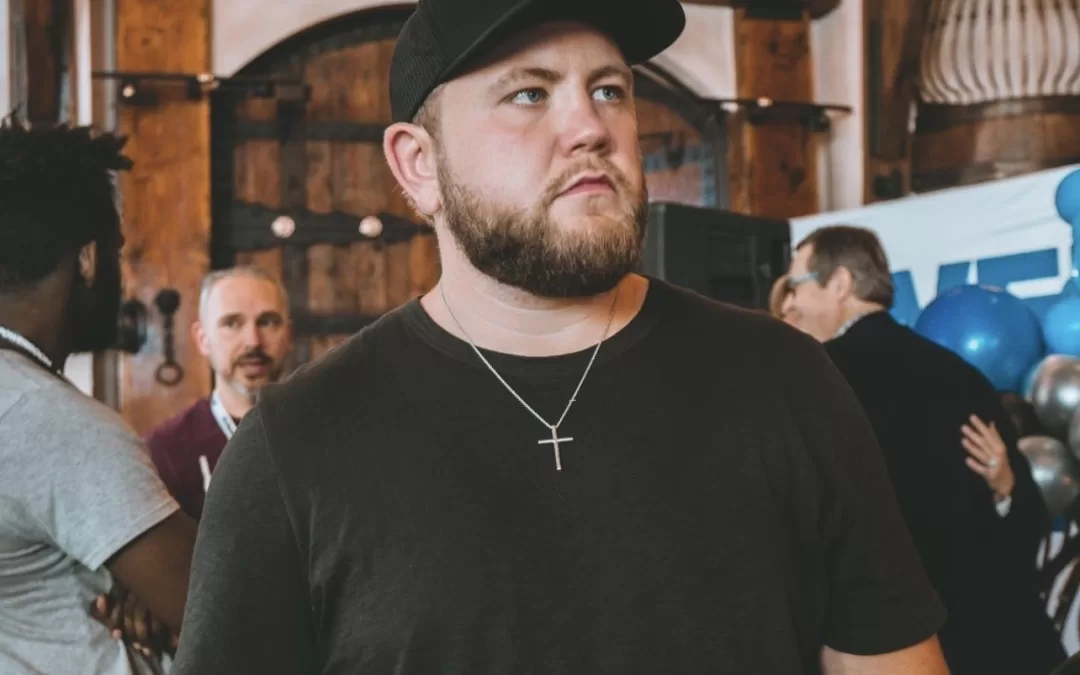From an interview that took place in Summer 2022
If you’re anywhere near Red River Gorge in West Virginia and spot a black Croc buried on the riverbank, it might belong to Devin Johnson. He lost it in the river when he almost drowned on a former Olympic whitewater rafting course a few years ago.
“When they briefed us, they told us to curl up like a cannonball if we fell off the boat,” Devin recalls. “You’re in such a strong rapid that if you try to swim, it just sucks you down. You have to reverse it to make the rapid spit you out.”
A lover of the outdoors and well-versed in extreme sports, Devin figured he wouldn’t need to use the knowledge. “We get out on the river, we go through some rapids, and then I remember the guide saying, ‘alright, this is the biggest, the baddest rapid – it’s called the Meat Grinder. If you fall in, it’s gonna be a while until we can come back and get you’. And of course, I fell in.”
Devin, who curled up into a cannonball as instructed, distinctly remembers the feeling of being tossed by the current. “It was like a washing machine. It would spit me out just enough to grab air, and then yank me back under. I thought I was going to die. Eventually, it broke, and I could swim. But it sucked the Croc right off my foot, and it took almost two hours for me to get back to the boat.”
While it was Devin’s first (and probably last) experience with the Meat Grinder, it’s not the first time he’s felt close to drowning. As a kid, before he’d shoulder the weight of the world in his teens, Devin loved the Army, loved Toy Story, and, in his own words, “loved breaking all the rules.”
Devin credits his grandparents for his motivation to work hard and do well in school. He spent a lot of time with them while his mother worked multiple jobs to provide for him and his siblings. He also occasionally visited his dad, who was in prison until Devin was ten. “If anyone reading this can relate to doing the ‘jail pose’ with their father… yeah, I have plenty of pictures of that,” he says.

Although Devin’s parents were never married or lived in the same house, Devin’s mom always encouraged Devin to foster a relationship with his dad. Devin tried, when he could. “He’d show up randomly, four or five times a year, with a ton of gifts. That was cool, it was like Christmas, but I always lacked that real connection with him,” Devin admits.
Luckily, he wasn’t lacking in male role models. In addition to his grandfather, Devin had a friend named Danny whose father, ‘Big Danny’, became someone he looked up to. “Big Danny got me into dirt bike racing, go-kart racing, things that kept me motivated and on-track,” he says.
Devin and his dad may not have had as deep of a relationship as Devin would have liked, but his dad was kind and supportive, and Devin enjoyed the time they spent together. His father lived a high-class lifestyle and could buy Devin any object or experience he desired. Devin never questioned this, or wondered where the money came from, until he was in his early teens.
“I was my dad’s house for the weekend. I pulled down the laundry basket, and a big bundle of weed fell out,” Devin recalls. “He sat me down to talk, and I remember he used the words ‘street pharmacist.’ He sold weed and cocaine, and most of what I thought was fortune was from the cocaine money.”
Learning about his dad’s source of income opened Devin’s eyes to a reality he’d never noticed. “I saw two worlds: my mom, who was a factory worker with multiple jobs, doing everything right, working so hard but low, low middle class; and then my dad. Two homes, ten cars, lavish lifestyle, and a drug dealer. But the common denominator was that they were both unhappy in their situations,” he says.
Because of the way he grew up, Devin knew a lot about the world by age fifteen. Looking back, he can see how lonely and depressed his father truly was. Because he never had a strong identity to stand on, Devin’s dad chased money to try and fill the gaps in his life. Although Devin understands the allure, he knew at a very young age he wouldn’t follow his father’s path. “Look, if you ask me to go on a private jet, I won’t say no. But I knew what my dad was doing wasn’t right. So I never got into drugs. I stayed off the party scene,” Devin says.
However, Devin knew he liked the opportunities his dad’s money could buy. He also knew he respected his mom for her hard work. He admired the role models he’d found in Big Danny and his grandpa. One day, he wanted to create a path of his own where he could achieve everything he’d ever wanted and help people up with him along the way. But that future came faster than Devin ever imagined when his little sister was diagnosed with brain cancer.
“I already lived in a divided household, but that divided it so much further,” Devin says. “Although my dad was fun and wanted to be involved, he didn’t know how to deal with tough situations. When my sister was diagnosed, he was around for a week or so, and then he disappeared for a year.”
During that same first week, Devin’s best friend committed suicide. Devin had no idea how to mentally wrestle with all the loss, but he knew one thing for sure: Instead of curling up into a cannonball and letting the rapids take him away, he would become strong enough to swim against the current. “My world was crashing down. It was on fire,” he says.”
“I remember I was sitting on my futon, and I thought, ‘This is going to make me or break me. And I choose to figure out how to get through this’.“
– Devin
Devin’s mom was immediately let go from her job so she could stay at Riley Children’s Hospital with her daughter, leaving fifteen-year-old Devin to step into the role as head of household. To make ends meet, Devin began flipping sneakers. “I still remember the first pair of shoes I sold. It was a Lebron All-Star, Area 72. I waited in line for six hours to get those shoes,” he recalls. “But before I got back to my buddy’s car in the parking lot, I’d flipped them for a $400 profit. And boom, baby. That was it.”
Devin spent the next year slinging shoes – Nikes, Jordans, Yeezys, and more. It was an unorthodox way to pay the bills, but it worked. Eventually, Devin’s dad came back, and Devin’s little sister lived to tell the story of beating brain cancer. But Devin’s entrepreneurial spark had been lit, and he was fueled by a new desire of his own: avoid hopelessness at all costs.
“I never wanted to relive that dark spot, sitting on my futon, not knowing any of the answers. I’ll never be in a situation where I can’t control the outcome. And I know I can’t control every situation in life, but I’ll always be able to control my emotions. If I can do that, I can sit down and reverse-engineer a solution to any issue,” Devin explains.
Although the sneaker market eventually bombed, Devin had gained a set of valuable digital marketing skills from flipping shoes. Once he’d turned eighteen, he used them to start an agency with his friends Cody Harvey, Steven Twomey, Brandon Poplstein, and Elliot Drake. “We learned that what people really wanted from us was the right conversation with the right people,” he explains. “We were using LinkedIn to start a lot of these conversations with our own clients, but it was so time-consuming.”
Devin worked extremely hard to keep the agency afloat. One thing that kept him going was the support of his wife, Cearia. The two of them have been together since their junior year of high school. “There were a lot of dark times. We struggled. She worked seven days a week, would give me her entire paycheck sometimes to make payroll. But she always believed in me and saw the light at the end of the tunnel.”
As a young man, coming out of a situation where his only purpose of work was to make the biggest profit possible, Devin began the difficult process of learning what it meant to stop making dollars his idols. “There was a time when my business partner [Cody Harvey] thought, ‘Devin will never learn to build real relationships’,” Devin admits. “I served one end goal at that time, and it was money. “
That’s not a good place to be,” he adds. “You end up with less. The more I focused on money over relationships, the less money I actually made. Cody and Cearia believed in me when the people who did were few and far between.”
One day, Devin made a rough sketch on a napkin of what it might look like to automate the process of lead flow generation on LinkedIn. The other four co-founders viewed it as Devin’s harebrained side project at first, but Devin knew that if he could make it a reality, it would change the world for business owners everywhere. He sourced a developer to build a bare-minimum product and started using it to sell itself via LinkedIn. That’s how he found his first-ever customer, a business owner from Michigan, who was immediately interested in buying.

During their discovery call, Devin named an arbitrary price – $1200 – because he hadn’t had time to think about what he wanted to charge. “He asked if I would onboard him in person. I said, ‘sure,’ Always say yes,” he says, grinning, “and figure it out later. Rule number one. Ready, fire, aim. So I had to drive five hours for $1200, but I was amped. It was $1200!”
To Devin’s dismay, the customer called him when he was halfway through the drive. He was having second thoughts and wanted to back out. Devin, in his own words, snapped. “I raged at this guy over the phone. This was back before I could control my emotions,” he clarifies, laughing.
When Devin finished ranting about how he was already halfway there, and calling the customer disrespectful (and worse), the line was silent. Devin thought he’d blown it. But the man on the other end replied, “You know what, Devin? You’re right. See you at 3.” When Devin arrived, not only did he make a $1200 sale, but the customer had bought him a $50 Starbucks gift card on top of it. Devin onboarded him in a conference room of a hotel in Detroit, and that was that. Kennected was officially up and running.
That first customer immediately snowballed into dozens more. After Devin sold $70k of software in 45 days, his co-founders started taking notice of his so-called side hustle. The Kennected software was barely out of its prototype stage. But this time, all of them saw the potential and jumped in on Devin’s new venture.
From the beginning, Devin knew the purpose of Kennected would be to save time and simplify opportunity. The software automates outreach, follow-up, and data aggregation of sales and recruiting via LinkedIn. Today, it’s a well-oiled machine, but in late 2018, it was (as Devin says) “terrible. It barely worked, and it looked like I was stealing everything through your computer when I installed it.” Even so, Devin and his friends sold over 6 figures of Kennected software in that final quarter of 2018 alone.
“I never thought it would fail,” says Devin. “Yeah, I was arrogant, but I also knew I was going to figure it out. That’s my favorite saying; figure it out. We jump off the cliff, and by the time we should’ve hit the ground, we’re flying a Citation C6 to Miami, baby!”
Of course, the journey hasn’t always looked like champagne and palm trees. Devin has never had a corporate job, so it’s been a learning curve for him to sit at the helm of a multi-million-dollar company. He’s learned everything he knows of leadership either from his mentors or through trial and error.
The benefit of this is that Devin has been able to build the culture he wants to see in Kennected without any preconceived notions of what a business should look like. He wants to build his employees’ dream jobs. As their leader, he knows that a great culture starts with him. “I’m big on leading from the front,” he explains. “That means I need to be willing to do, or have done, the task I’m asking for from someone else. It also means respecting all humans and their roles, down to the janitors.”
“I know all the janitors here by name. I buy them dinners. I know their families, and I ask about their big life events,” he adds. “Leading from the front means being willing to take out the trash. It means understanding that every person is essential for a successful team that’s going to change the world.”
For Devin, changing the world looks like creating businesses that make a conscious effort to give back to the community. “I believe in driving positive impact through the way that you treat people. That’s one thing my father did really well,” Devin adds. “I never admired what he did for a profession, but I watched him take care of people, and that inspired me.”
Numerous times, Devin watched his father buy steaks for people without homes and give them hundred-dollar bills. Once, he literally gave someone the shirt off his back. “My mom’s the same way, too,” Devin adds. “She just does it in a different way.”
Because of his belief that people should take care of each other, Devin will never settle for stepping on others to succeed. “What is success if you don’t have people next to you? If you’re hoarding resources, you’re not enjoying them.”
“I want a community of us to rise. I want everyone’s life to change for the greater good.”
– Devin Johnson
Above all else, Devin prioritizes the self-actualization of his employees. He’s a fan of work-life integration and pushes his trusted team to pursue personal growth within their jobs. “I’m constantly looking for that next-level leader who can come in and coach the team, or that next-level resource they can have access to,” Devin says. Generous bonuses and benefits, rewards for going above and beyond, stock in the company, and immersive retreats are all a part of the Kennected lifestyle. Devin has been able to help many of his employees start retirement accounts, establish better credit, and buy their own homes. The rewards of that, he says, are greater than anything Kennected could financially provide him as its CEO.
Devin also constantly pushes his own personal and professional limits. “There’s one investment that trumps them all in your life, and that’s your mind,” he advises. Kennected is involved in every local group they can find. “My favorite is Synergize, and I’m not just saying that because you guys are interviewing me. But we love to get involved in anything that’s local and synergistic to our business, especially if it gives back to the community.”
Some of Devin’s other favorite groups are mastermind groups. He belongs to as many as he can pack into his schedule. “I want to be the dumbest person in the room,” he says. “I’m a student for life. I’m a part of everything from family-oriented mastermind groups to niche SAAS groups for CEOS where the members need to be making a certain amount of revenue and you need to sign a contract to be a part of it.”
“There is a balance,” he adds. “You need to leave time to apply what you learn. Learning without massive action is just dreaming.”
One place where Devin has taken massive action to change his priorities is with his family. When he found out he and Cearia were expecting their first child, Devin knew immediately that his reality would need to shift. “I’m still working on this,” he clarifies, “but I had to start prioritizing myself in addition to the business, and making sure my family was always in the picture.”

The way Devin balances his life is by setting hard boundaries with his time. In the morning, he wakes up early to focus on his personal growth and development. Right now, he’s on a weight loss journey, down 87 pounds. During business hours, it’s all Kennected, all the time. Once he’s home in the evening or on the weekends, all of his energy is reserved for his wife and daughter.
Devin also brings his wife and daughter on his travels for work. “We love outdoor stuff. My wife loves camping. If we can find something extreme that still allows kids to go, we all go together. We hate to do the same thing over and over, so we do different stuff all the time.”
More than anything, Devin wants his daughter to believe in herself. “I try to tell my daughter 7-15 times a day that she’s beautiful,” he says. “She’s beautiful, she’s glowing, and she’s gifted. And I want her to know that if she keeps the small promises she makes to herself, she can build her confidence and overcome challenges.”
Since becoming a father, Devin has thought a lot about what he would say if he had another chance to talk to his own dad, who overdosed when Devin was 21. “The biggest thing I’d want to tell him is that I don’t want material things. I want a relationship with you,” he says. “I don’t know if my dad fully understood that I wanted to be his son, not an obligation, until right before he died.”
Ultimately, though, the past holds no answers for Devin. What matters is the future, and what he plans to do with the support and influence of all the people who have impacted him over the course of his life. He’s confident that he’ll be able to make the best of it. “I may come off as too confident or egotistical, but at the end of the day, I just know who I am and what I stand for,” he says. “I encourage anybody who’s reading this to sit down and figure that out for themselves. It starts with knowing your foundation and knowing where you’re going. If you do that, the confidence and relentlessness will bleed through. It always will.”

